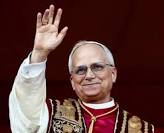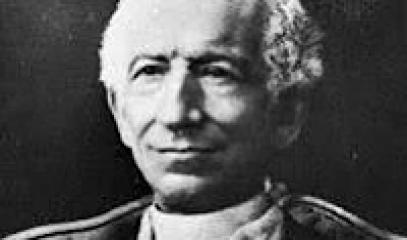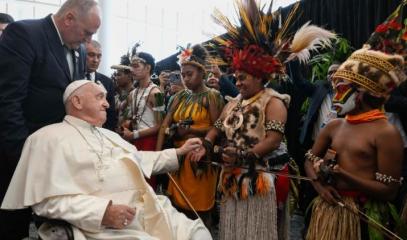Justice and the Environment: Leo XIV and the ‘Social Testament’ of Francis in Port Moresby
Care for creation and overcoming divisions were the themes at the centre of the Argentine pontiff's last apostolic journey in September last year. Already by name the successor draws the Church's attention to the “new things” and the challenges of the present. The sacredness of life and the mission to build bridges in society.
Port Moresby (AsiaNews) – As Cardinal Robert Prevost, elected to succeed Pope Francis, takes the name of Leo XIV, there is no doubt on the focus of his upcoming ministry. In 1891 his namesake Leo XIII inaugurated the Social Teachings of the Church with the Encyclical Letter Rerum Novarum.
An 81-year-old Pontiff (he would die 93) was calling the attention of the Church to the “new things” that were reshaping society with the industrial revolution and the marginalization and exploitation of the working class.
Since then, the call for peace, social justice, the defense of the weak, the priority of the person, the dignity of labor, the protection of the environment, have regularly resonated in the words and the teachings of the Popes and the CatholicChurch.
Pope Francis particularly focused on the care of creation and our common home with theEncyclical Letter Laudato Si’ and the Apostolic Exhortation Laudate Deum. He did it also in his speeches in Papua New Guinea during his visit on 7-9 September 2024. Immediately atthe opening meeting with the Authorities, Civil Society and the Diplomatic Corps at ApecHaus he acknowledged the abundance of natural resources in our country.
“These goods - he said, however - are destined by God for the entire community. Even if outside experts and large international companies must be involved in the harnessing of these resources, it is only right that the needs of local people are given due consideration when distributing the proceeds and employing workers, in order to improve their living conditions”. And in Vanimo, the next day, he shared the belief and the hope that the harmony of nature fosters the reciprocal love and communion of people.
The destruction of nature is a death sentence for mankind. Much more so when the attack on creation is accompanied by an attack on the person. Pope Francis gave some examples: urban poverty and rural neglect and isolation, people marginalized and victims of violence from criminality, tribal fights, and senseless sorcery accusations.
“It is my particular hope – he said at Apec House - that tribal violence will come to an end, for it causes many victims, prevents people from living in peace and hinders development”. Social respect, justice and peace are pillars of the Social Teachings of the Church.
In his inaugural speech Pope Leo, stressed the importance of building bridges between individuals, groups and nations. Pope Francis advised the young people in Port Moresby to work for unity against division, confusion and dispersion, to foster harmony of encounter with God and with others, to stop violence especially in the family: “In the Lord’s name, I remind you that life is sacred. Life is not to be violated. Life is not to be abused in any way!”.
While the Social Teachings of the Church frequently address threats external and coming from around the person, Pope Francis speaking from Vanimo stressed the need “to‘recompose’ rivalries, to overcome divisions – personal, family and tribal –, to drive out fear, superstition and magic from people’s hearts, to put an end to destructive behaviours such as violence, infidelity, exploitation, alcohol and drug abuse, evils which imprison and take away the happiness of so many of our brothers and sisters, even in this country”.
It is a growth in spiritual life and personal dedication that heals private and social evils. Faith is only true with charity. In Vanimo Pope Francis acknowledged that, since the eighteenth century, “consecrated men and women, catechists and lay missionaries have not stopped preaching the word of God and offering help to their brothers and sisters through pastoral care, education, healthcare and many other ways”.
Among them were two martyrs, Blessed John Mazzucconi and Blessed Peter To Rot. Pope Francis recalled both names at Apec House, and then again John Mazzucconi at the Mass at Sir John Guise Stadium and BlessedPeter To Rot (soon to be a saint) at the meeting with the youth at the same venue. Because “even in times of severe restrictions on Christian activities, [he] never gave up”. Under Francis and Leo that includes what opposes action in favour of creation and the poorest of mankind.
Fr Giorgio Licini, PIME missionary, Advocacy Director of Caritas Papua New Guinea
11/08/2017 20:05









.png)










